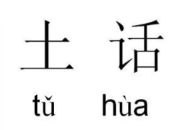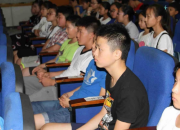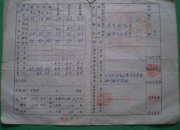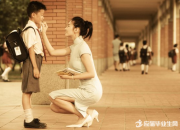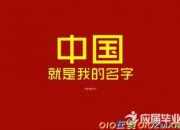中国清明节英语作文
时间:2021-08-31中国清明节英语作文
清明佳节是中国的传统节日,在这个节日里大家都参与了哪些传统习俗呢?以下是小编为大家整理好的中国清明佳节英语作文,欢迎大家阅读参考!
清明佳节英语作文【1】
Ching Ming festival is a traditional Chinese festival, has a history of two thousand five hundred years; Its main traditional cultural activities are: grave, outing, cockfighting, swing, play mat, pull hook, tug-of-war), etc. The members (the grave), is very old. Tomb-sweeping day, as a traditional culture, it is a full of mysterious colorific festival, on this day, the pedestrians on the road are missing people who died, to express their respect and grief!
Ching Ming festival, in hainan many locals call it the "qingming festival". Middle age the qingming festival is very important, if not as a legal holiday, they will also take time to go home "qingming festival". This suggests that the qingming festival has become a culture, become a man of the late express a way of missing loved ones.
Qingming festival, is a kind of Chinese traditional culture recognition and respect. Qingming festival is very important in the ancient tradition of a festival, is also the most important festival of festivals, was the day of ancestor worship and the grave. This grave, the shrine of the dead an activity. The han nationality and some minority are mostly in the tombs. According to the old tradition, the grave, people to carry goods such as especially fruit, paper money to the grave, will be food for offering in the family tomb, then paper incineration, new soil up to the grave, fold a few branches pale green branches ed in the grave, and then salute kowtow worship, finally eat especially home. The tang dynasty poet tu mu's poem "qingming" : "rains fall heavily as qingming comes, and passers-by with lowered spirits go. Restaurant where? Boy pointed apricot blossom village." Write the tomb-sweeping day is special atmosphere. Until today, tomb-sweeping day ancestor worship, mourning the late relatives customs still prevail. And the more brought to the attention of the people.
Chinese is influenced by its culture, make clear the Chinese memorial ancestors festival. Ancestor worship in qingming festival people are back, this is a kind of culture, a kind of habit.
清明佳节是中国传统的节日,有两千五百年的历史;它主要的传统文化活动有:上坟、踏青、斗鸡子、荡秋千、打毯、牵钩(拔河)等。其中上坟(即扫墓)之俗,是很古老的。清明佳节,它作为传统文化,是个布满神秘色彩的节日,在这个日子里,路上的行人都在思念去世的人们,表达对他们的尊重与哀思!
过清明佳节,在海南的许多本地人中称其为“做清明”。中年人对清明佳节十分看重,即使不是作为法定假日,他们也会抽空回老家“做清明”。这说明清明佳节已经成为了一种文化,成为了一种后人对已故之亲人表达思念的一种方式。
清明,是中国传统文化的一种认可及尊重。清明是古人传统习俗中十分重要的一个节日,也是最重要的祭奠节日,是祭祖和扫墓的日子。扫墓俗称上坟,祭奠死者的一种活动。汉族和一些少数民族大多都是在清明佳节扫墓。按照旧的习俗,扫墓时,人们要携带酒食果品、纸钱等物品到墓地,将食物供祭在亲人墓前,再将纸钱焚化,为坟墓培上新土,折几枝嫩绿的新枝插在坟上,然后叩头行礼祭拜,最后吃掉酒食回家。唐代诗人杜牧的诗《清明》:“清明时节雨纷纷,路上行人欲断魂。借问酒家何处有?牧童遥指杏花村。”写出了清明佳节的非凡气氛。直到今天,清明佳节祭拜祖先,悼念已逝的亲人的`习俗仍很盛行。而且越加受到人们的重视。
中国人受自身文化的影响,使清明成为了国人追思先祖的节日。在清明人们纷纷回乡祭拜祖先,这已是一种文化,一种习惯。
清明佳节英语作文【2】
Today is April 5, ching Ming festival.
My father and I went back to the countryside hometown for ancestor's grave. We came to the ancestral grave, dad with his shovel the tombs to repair, and then put the tribute to the grave, took me to the ancestors on three head, got up and down a bowl of wine, spilled a circle around the tombs. In the grave, we walk in the mountains You'll also be able to contribute, on a mountain high, there are lush trees, there are green grass, there are clear lakes, beautiful!
On the way home, winter jasmine, plum and cherry blossoms are scrambling to in full bloom, fragrance of flowers floating around, a lot of visitors to take photos in front of the flower, laughing faces as beautiful as flowers, how happy ah! Dad told me: tomb-sweeping day is our memory of martyrs, ancestor worship festival, festival is blooming, play for an outing. He told me the martyrs brave fight, fear no sacrifice revolutionary story. I listened to the very touched, it is our predecessors bloody sweat, hard working, just have our good life today, so we should cherish the happy life today, study hard, healthy growth, grow up contribution strength, serve the country!
今天是四月五日,清明佳节。
我和爸爸回到了乡下老家给祖先上坟。我们来到了祖先的坟前,爸爸用铁锨把坟茔修缮了一番,然后把带来的贡品放到坟前,带着我给祖先磕了三个头,起身倒了一碗酒,围绕坟茔洒了一圈。上完坟,我们就在山里踏青游玩 你也可以投稿,高高的山上,有茂盛的树林,有绿绿的青草,还有清澈的湖水,美丽极了!
回家的路上,迎春花、梨花、樱花争相盛开,花香四处飘荡,好多游人在花前拍照留影,一张张笑脸和鲜花一样美丽,多么幸福呀!爸爸告诉我:清明佳节是我们缅怀先烈、祭拜祖先的节日,也是春暖花开、游玩踏青的节日。他还给我讲了先烈们英勇战斗、不怕牺牲的革命故事。我听了很感动,正是先辈们流血流汗、艰辛创业,才有我们今天的美好生活,所以我们要好好珍惜今天的幸福生活,努力学习、健康成长,长大了贡献力量、报效国家!
介绍清明佳节英语作文【3】
Last Qingming Festival,i return home to worship my grandfather.Qingming Festival is a folk Festival.In the past,In the past, the Qingming Festival was called "Arbor Day". But Today, Chinese visit their family graves to tend to any underbrush that has grown. Weeds are pulled, and dirt swept away, and the family will set out offerings of food and spirit money. Unlike the sacrifices at a family's home altar, the offerings at the tomb usually consist of dry, bland food. One theory is that since any number of ghosts rome around a grave area, the less appealing food will be consumed by the ancestors, and not be plundered by strangers.
With the passing of time, this celebration of life became a day to the honor past ancestors. Following folk religion, the Chinese believed that the spirits of deceased ancestors looked after the family. Sacrifices of food and spirit money could keep them happy, and the family would prosper through good harvests and more children.
介绍清明佳节英语作文【4】
The Qingming (Pure Brightness) Festival is one of the 24 seasonal division points in China, falling on April 4-6 each year. After the festival, the temperature will rise up and rainfall increases. It is the high time for spring plowing and sowing. But the Qingming Festival is not only a seasonal point to guide farm work, it is more a festival of commemoration.
The Qingming Festival sees a combination of sadness and happiness.
This is the most important day of sacrifice. Both the Han and minority ethnic groups at this time offer sacrifices to their ancestors and sweep the tombs of the diseased. Also, they will not cook on this day and only cold food is served.
The Hanshi (Cold Food) Festival was usually one day before the Qingming Festival. As our ancestors often extended the day to the Qingming, they were later combined.
On each Qingming Festival, all cemeteries are crowded with people who came to sweep tombs and offer sacrifices. Traffic on the way to the cemeteries becomes extremely jammed. The customs have been greatly simplified today. After slightly sweeping the tombs, people offer food, flowers and favorites of the dead, then burn incense and paper money and bow before the memorial tablet.
In contrast to the sadness of the tomb sweepers, people also enjoy hope of Spring on this day. The Qingming Festival is a time when the sun shines brightly, the trees and grass become green and nature is again lively. Since ancient times, people have followed the custom of Spring outings. At this time tourists are everywhere.
People love to fly kites during the Qingming Festival. Kite flying is actually not limited to the Qingming Festival. Its uniqueness lies in that people fly kites not during the day, but also at night. A string of little lanterns tied onto the kite or the thread look like shining stars, and therefore, are called "god's lanterns."
The Qingming Festival is also a time to plant trees, for the survival rate of saplings is high and trees grow fast later. In the past, the Qingming Festival was called "Arbor Day". But since 1979, "Arbor Day" was settled as March 12 according to the Gregorian calendar.
【中国清明节英语作文】相关文章:
2.中国的清明节作文
3.中国拜年英语作文
4.中国梦英语作文
5.清明节英语作文
6.清明节的英语作文


